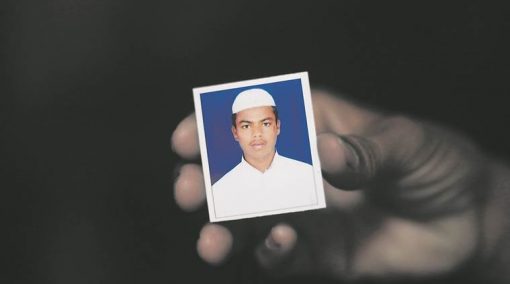
According to sources, four out of the six accused were granted bail in a matter of months. All of them had confessed to being a part of the mob that harassed Junaid and his brothers but said they didn’t wield the knife that was used to stab them. After a year, his family still awaits justice and an anti-lynching law.
It is exactly a year since 15-year-old Hafiz Junaid was stabbed in a Mathura bound train while going back to his home in Ballabhgarh, Haryana.
In an earlier report, Firstpost said that while travelling on the Delhi-Mathura passenger train, Junaid had a fight with other passengers over a seat. The fight turned violent as someone claimed that the food packet that the group was carrying had beef in it. People watched and even encouraged the mob who proceeded to repeatedly stab Junaid with a knife, all the while branding him "anti-national.” Junaid was killed while his two brothers, Hashim and Sakir, were injured while the mob hurled slurs against them. They were stabbed and dumped at Asaoti railway station in Palwal district.
His family still awaits justice and an anti-lynching law after a year.
Just a month after the incident, Chander Prakash, one of the accused in the case was granted bail by the Faridabad court. “Police has done everything wrong… They’re doing this under some political pressure… It’s been a little more than a month and the culprit has been let out on bail. My sons told me he was one of the main culprits,” Jalaluddin, Junaid’s Father had said after the verdict in a report by Quint.
According to sources, four out of the six accused were granted bail in a matter of months. All of them had confessed to being a part of the mob that harassed Junaid and his brothers but said they didn’t wield the knife.
The Supreme Court stayed the trial in March this year as it sought a response from the Central Bureau of Investigation and Haryana government on a plea seeking the transfer of investigation from the state police to the CBI. “The bench of Justice Kurian Joseph and Justice Mohan M. Shantanagoudar stayed the trial before the court in Haryana's Faridabad and sought a response on the transfer of investigation to CBI on a plea by Junaid Khan's father Jalaluddin. Jalaluddin has moved the top court challenging November 27, 2017, Punjab and Haryana High Court order rejecting his plea for handing over the investigation to CBI. Holding that there was no substance in the plea to indicate that the investigation by the state police was tainted or shoddy, the High Court had said that there appeared no deliberate attempt to derail the investigation. It had declined to exercise its extraordinary powers, saying that the case did not have any national or international ramifications,” the Quint reported.
“A year later, sorrow and gloom haven’t left the Khan household. Junaid’s mother Saira has taken to the bed in grief; father Jalaluddin has lost 25 kilos; brother Shakir, who was also attacked by the group, is still unable to lift one arm; and brothers Faisal, Adil, Hashim and Qasim refuse to take the local train in which the 15-year-old was killed,” reported The Indian Express.
“We are losing faith in the institutions every day. Barring one accused, everyone else is out on bail. We are scared because my children Shakir and Hashim are key eyewitnesses,” said Jalaluddin. Two police officers have been stationed outside the family’s home since last year. Still, every time a family member steps out of the village, Jalaluddin gets restless. “I’ve told my children and grandchildren to only travel by the Metro, to not talk to anyone or get in a fight. I call them every 30 minutes. I fear that what happened to Junaid will happen again,” he said in the report.
The report added that Last November, village sarpanch Nishar Ahmed had approached Junaid’s kin “to agree to an out-of-court settlement with the accused so that the villages can maintain peace and brotherhood.” The family had refused the offer — money and land. On the proposal, Ahmed added in the report, “I only did my job as the sarpanch…there is no pressure on the family to settle.”
#NotInMyName
Junaid’s lynching saw a wave of outcry envelop the country as slogans of #NotInMyName were chanted in many big and small cities and towns. Sabrang India published a report about the protests happening in Delhi, Chandigarh, Gaya, Kolkata, Trivandrum, London, Toronto and more. A report also listed the various protest venues and the series of attacks that culminated into a nationwide protest.




